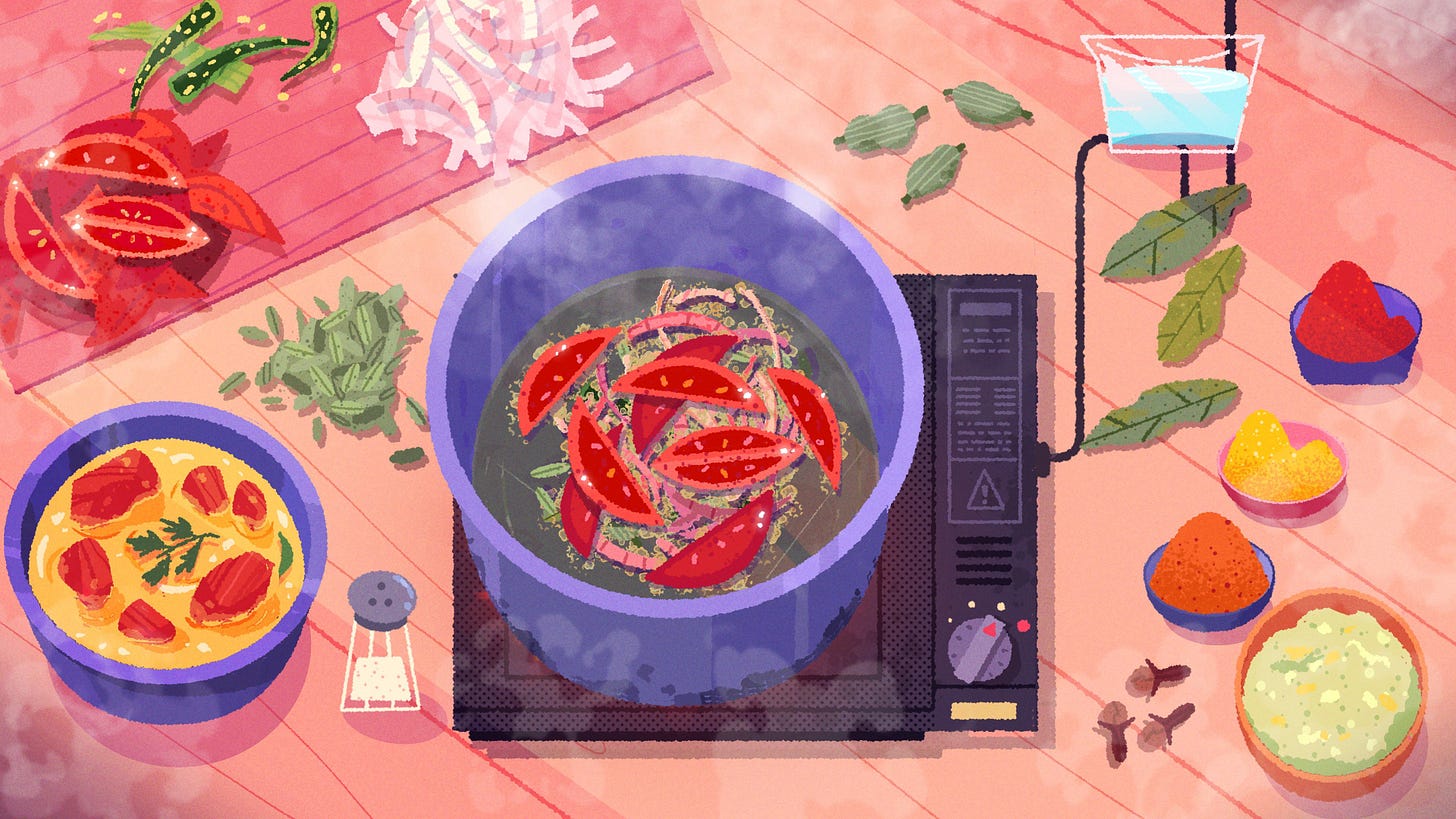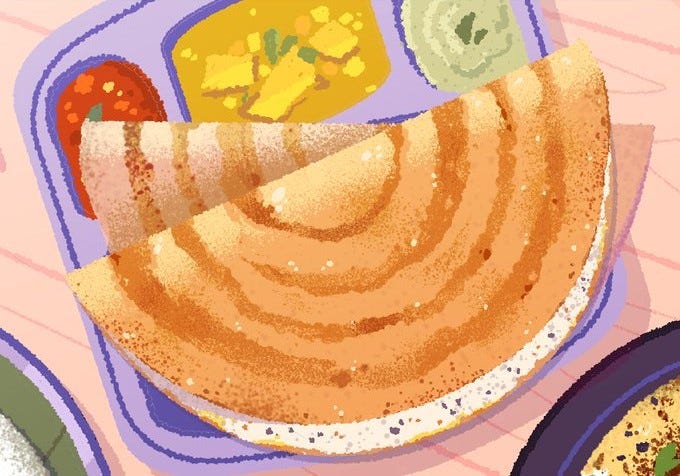As a second-generation immigrant, Venba was a game that instantly piqued my interest when I first knew of its existence several years ago. The story centres on a South Indian (Tamil) couple; the titular Venba and her husband Paavalan; as they emigrate to Canada from Chennai and look to make a living and a family. The game’s narrative is essentially an immigrant’s story seen via the perspective of both the first generation and second generation. Watching pre-release trailers, you may get the idea that Venba is a cooking game, but often the cooking takes a backseat to the narrative developer Visai Games want to tell about the struggles of resettling in foreign country where no one sounds, looks or eats like you, and the subsequent effects on the next generation. Venba is as much a cooking game as Anthony Bourdain’s Parts Unknown is a cooking show; which, for the uninitiated, is much more focussed on the political landscape of different countries rather than their respective cuisines. And to be honest, that’s what makes Venba heartfelt and interesting.
Soon after starting the game, the couple welcome their son Kavin into the world. The game has some quite large, and sometimes slightly jarring, time jumps between its seven chapters; often a new chapter will take place years, at times even as much as a decade after that which preceded it, but the game’s narrative does just enough to help you fill in the blanks as to what occurred during those years. What you’re meant to infer is the difficulties that Kavin had to endure growing up, what I presume to be, the only brown kid in school and his parents feeling despondent by the fact that their child is embarrassed by his Tamil background and wishes to distance himself from his roots.
It’s brutal but honest. My upbringing was in a West Indian household, which is still…well…the West so my childhood experience wasn’t quite as jarring as Kavin’s; for example, I still spoke English at home and didn’t have anyone want or need to Anglicise my name. Whilst I was never ashamed of my background, I still empathised with Kavin’s story of being “other”, certainly when it came to food. Despite its colourful appearance, Venba doesn’t shy away from heavier topics like racism, unconscious bias, hate crimes and even death, but it does so in a way that doesn’t linger on these issues that may resurrect any trauma any player of colour may be carrying. The upbeat music, excellent proverbs of Thiruvalluvar and cooking also help to ensure that Venba isn’t a dour affair.
Speaking of the cooking, the mechanics are very basic - they resemble those of a simplified Cooking Mama game where at most you’re twirling the analog stick or dragging and dropping ingredients. Each recipe has a puzzle element, often having to figure out the order of steps because your recipe book, passed down from previous generations, is dog-eared and worn to the point of it being illegible. This provides a fun little wrinkle to proceedings but don’t go into Venba expecting deep puzzle or gameplay mechanics. The cooking isn’t quite perfunctory but it’s no more than flavour text.
More than the actual cooking I appreciate the fact that South Indian cuisine is in the spotlight. Okay, given my Guyanese heritage, I may know how to make tadka dal already but a large portion of the game’s playerbase (especially by virtue of it being available day one on Xbox Game Pass) may have never even heard of idli. I think Venba missed a trick of not having an actual recipe book, perhaps in the main menu, for those interested in recreating the recipes in real life. But hey, as an immigrant I know how tiring it can be to have to explain every little detail about your culture - people can go seek out that information themselves if they’re curious, which they should be as the sights and sounds of Venba make dishes look delectable.
Although the cooking mechanics are not as layered as the biryani* you make in chapter four, the presence of food in Venba is nevertheless important and central to the game’s story and deeper message. Venba uses food as an effective way to tell an immigrant’s story in a way that is as heartbreaking as it is heartwarming. Seeing the joy Venba gets from steaming idli despite suffering from nausea during her pregnancy is harshly contrasted by Kavin later declining to take his mother’s food to college for fear that it would smell out the car on the journey up. Even little touches like seeing Kavin’s father Paavalan eat dinner with his hands whilst Kavin is picking at his own with a spoon are subtle but powerful. Inevitably, Kavin comes full circle and as an adult wishes to reconnect with his background and culture and, surprising no one, the catalyst for this epiphany is food.
Venba relies on the well-acknowledged but still comforting notion that food is what reminds us of home, what binds us to our respective cultures and what is passed down through generations. Whilst other things like language, literature and customs may get left behind, food always remains. It’s beautiful, it’s heartfelt and it deserves your time.
*This game validated my staunch refusal to ever cook biryani - too much work.






